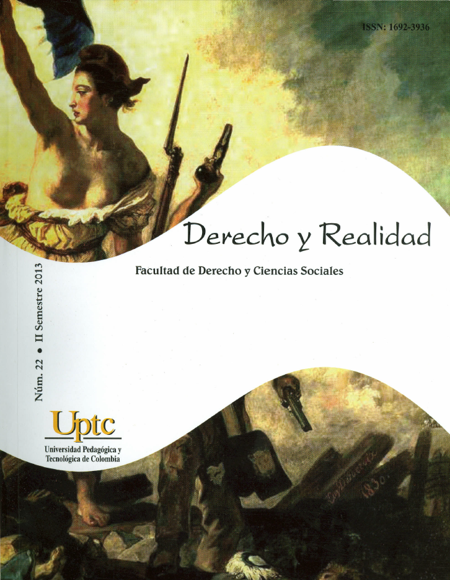Causes and early effects of Organic Law 1/2009 whichreforms the Principle of universal jurisdiction in Spain

Abstract
According to the study of the background of the application of the principle of universal jurisdiction for the Spanish courts, an officiousness is denoted in terms of the effective recognition of human rights, all this driven by a series of legislative reforms that arises thanks on the one hand, to the necessary adjustment of the Spanish legislation to the International Criminal law, and on the other, to the political and diplomatic pressures. It was inserted the application of a principle of universal jurisdiction to solve as an exercise of justice that must at all costs be limited, by criteria such as connection to a national interest, the principle of subsidiarity and the application of a test of reasonableness. Through Organic Law 1 of the year 2009 was gave a new stage in the Spanish justice that has influenced on a large scale the international law, for its contribution to the achievement of a more just and sure world, and to strengthen international law, rather than the violence, as a common way of solving conflicts.Keywords
principle of universal jurisdiction, justice, jurisdiction, human rights,international law, international criminal law
References
Gómez, F. (2010). Protección jurídica internacional de las niñas y niños soldado.En F. Aldecoa & J.J. Corner. La protección de los niños en el derecho internacional y las relaciones internacionales. (pp. 139-172). Barcelona: s.n.
Mugambi, J. (2007). Spain’s Expanded Universal Jurisdiction to Prosecute HumanRights Abuses in Latin America, China, and Beyond.Ga. J. Int’l&Cia.L.,35(3), 495-537.
Pérez, C. & Escudero, R. (Eds.). (2009).La responsabilidad penal por la comisiónde crímenes de guerra: el caso de Palestina. Madrid: Aranzadi, ThomsonReuters, Universidad Carlos III de Madrid.
Pignatelli y Meca, F. (2000). El artículo 8 del Estatuto. Los crímenes de guerra.REDM (75), 229-380.
Pignatelli y Meca, F. (2003). La sanción de los crímenes de guerra en el derechoespañol. Madrid: Ministerio de Defensa.
Pigrau, A.(2000). El proceso a Pinochet en España.ILSA J. Int’l & Comp. L., 6,775-807.
Ratner, M. &Brody, R. (Eds.). (2000).The Pinochet papers: the case of Augusto Pinochet in Spain and Britain. Boston: Kluwer Law International.
Remiro, A. (1999).El caso Pinochet. Los límites de la impunidad. Madrid: Política Exterior-Biblioteca Nueva.
Roldán, J. (2010). La política exterior española en materia de derechos humanos.En C. Ramón.Estabilidad internacional, conflictos armados y protección delos derechos humanos. (253-292). Valencia: s.n.
Sánchez, A. (2001-2002). Spanish Practice in the Area of Universal Jurisdiction.SPYL, (8), 17-53.